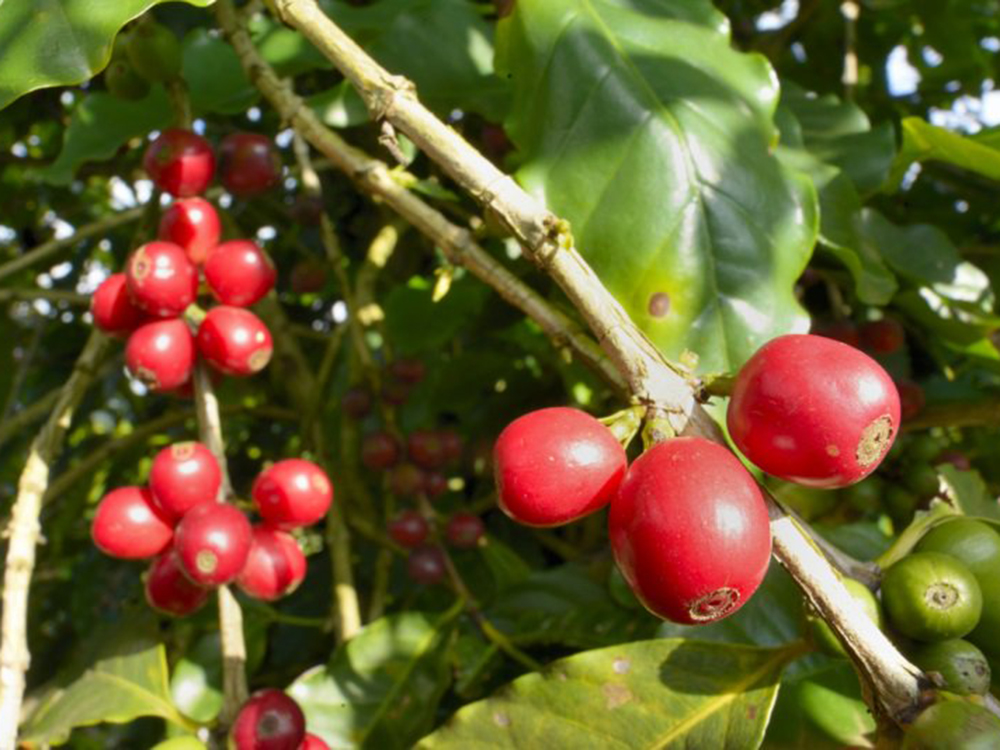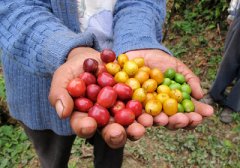Brazilian coffee bean brand recommends how to make coffee Brazilian coffee bean variety

Professional coffee knowledge exchange more coffee bean information please follow the coffee workshop (Wechat official account cafe_style)
[Brazil BRAZIL]
"extremely warm and smooth, the entrance is sweet and pure, and there is no thankless acrid and astringent taste in the aftertaste. It does not feel as thin as water and is quite thick." It is the definition of Brazilian high-quality coffee beans by the Brazilian Fine Coffee Association. Brazil ranks first in the world in terms of coffee bean production, with the south as the main producer. The soil is weathered basalt with good drainage and fertile soil, which is very suitable for coffee growth. Its aroma and taste are moderate, so it is especially recommended for friends who prefer not to like sour taste.
Mild aroma and beans, mellow and smooth, individual taste or mix with other coffee beans are excellent choices!
Naturally shaded high-quality Arabica beans, although sun-treated, have the appearance of washed beans, high sweetness and smooth entrance.
◎ suggests food pairing: fruitcake
"recommended drinking method"
All coffee products have obtained international fair trade certification and are responsible not only for the social responsibility of the production chain from the source, but also for the mode of production and quality. Drinking a cup of coffee can not only enjoy the beautiful taste of peace of mind and high quality, but also change the development of poor communities, raise the standards of human rights, promote women's social equality, improve children's welfare, and promote environmental protection and sustainable agricultural production.
Important Notice :
前街咖啡 FrontStreet Coffee has moved to new addredd:
FrontStreet Coffee Address: 315,Donghua East Road,GuangZhou
Tel:020 38364473
- Prev

Sao Paulo, the coffee capital of Brazil, explores the origin of Brazilian coffee beans in the caf é series of Sao Paulo, Brazil
Professional coffee knowledge exchange more coffee bean information please follow the coffee workshop (Wechat official account cafe_style) Brazil is the world's largest producer of coffee beans, in recent years in the boutique coffee market, more loved by coffee cup testers, which proves the high quality of its coffee beans. On this trip to the local city of Sao Paulo, I was lucky enough to find several boutique coffee shops.
- Next

Introduction of Brazilian Coffee Bean varieties Brazilian Syrador bourbon Coffee beans Brazilian Yellow bourbon Coffee
Professional coffee knowledge exchange more coffee bean information please follow the coffee workshop (Wechat official account cafe_style) Brazilian coffee: (producing country: Brazil) Brazilian coffee ranks first in the world in coffee production, formal coffee cultivation began around 1850, from Sao Paulo in southeastern Brazil began to plant coffee trees. Now the main producing area is centered on the south. Soil
Related
- Detailed explanation of Jadeite planting Land in Panamanian Jadeite Manor introduction to the grading system of Jadeite competitive bidding, Red bid, Green bid and Rose Summer
- Story of Coffee planting in Brenka region of Costa Rica Stonehenge Manor anaerobic heavy honey treatment of flavor mouth
- What's on the barrel of Blue Mountain Coffee beans?
- Can American coffee also pull flowers? How to use hot American style to pull out a good-looking pattern?
- Can you make a cold extract with coffee beans? What is the right proportion for cold-extracted coffee formula?
- Indonesian PWN Gold Mandrine Coffee Origin Features Flavor How to Chong? Mandolin coffee is American.
- A brief introduction to the flavor characteristics of Brazilian yellow bourbon coffee beans
- What is the effect of different water quality on the flavor of cold-extracted coffee? What kind of water is best for brewing coffee?
- Why do you think of Rose Summer whenever you mention Panamanian coffee?
- Introduction to the characteristics of authentic blue mountain coffee bean producing areas? What is the CIB Coffee Authority in Jamaica?

